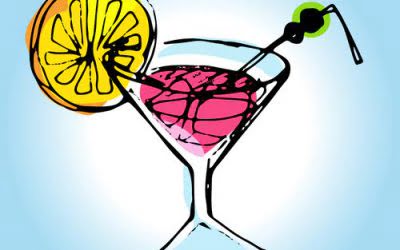

As a consequence, any fat that you consumed earlier is readily stored as adipose tissue. Increasing exercise is important when seeking weight loss. Choose vegetables, fruits, whole grains, and lean proteins. These foods are loaded with important nutrients like fiber, healthy fats, and antioxidants. Explore the many factors to consider when deciding how much alcohol is safe for you. Buy the Special Health Report,Alcohol Use and Abuse to get details of the dangers of alcohol misuse, from drunk driving to chronic, life-threatening health conditions.

Instead, we are only stating that moderation is key when it comes to alcohol consumption. An increased risk of health issues such as cardiovascular disease, sleep apnea, high blood pressure, renal disease, depression, acid reflux, and fatty liver disease. For some people, beer bellies tend to feel hard and firm when touched.
Pair a glass of water with your wine
Alcohol affects people differently, water retention is a common side effect of drinking. Alcohol dehydrates you, so your body will hold onto whatever fluids it can. Too much alcohol lowers testosterone levels, especially for men, and that means you’re likely to accumulate belly fat. Zinc supports testosterone production so your body can burn fat more effectively.
- But a study looked at how macronutrient-accompanying foods impacted energy intake and weight gain.
- Alcohol affects people differently, water retention is a common side effect of drinking.
- Your body then redirects the blood flow through smaller blood vessels that are not designed to carry large amounts of blood.
- If you still want to treat ‘yo self to a beer and a snack every so often, try cutting down your portions.
- In round numbers, a standard 12-ounce beer contains about 150 calories; a light beer, about 110 calories.
The health benefits of eggs has been anything but clear. Here’s why they’re actually good for you and how they can spark weight loss. Avoid tucking in shirts, similar to wearing tight clothing, it can make a beer belly stand out more. Healthy weight loss involves losing about 1 to 2 pounds per week. The CDC emphasizes that individuals seeking weight loss at this gradual pace are more likely to keep it off for the long term. If you still want to treat ‘yo self to a beer and a snack every so often, try cutting down your portions.
General indigestion, and even IBS flare-ups, can be temporary. As you might guess, much of this damage occurs in the stomach. For example, some alcoholic beverages are less likely to cause a flare-up of IBS.
You’re genetically predisposed to gain visceral fat
The bottom of your tape measure should be level with the top of your right hip bone, right where the hip bone lines up with the center of the armpit. Make sure you measure in the same place each time you check your visceral fat measurement. A person can treat alcohol induced gastritis by taking prescribed antibiotics. Also, alcoholic intoxication may increase the likelihood of overeating.
How To Get Rid Of Belly Fat In Men? Best Proven Methods – The Island Now
How To Get Rid Of Belly Fat In Men? Best Proven Methods.
Posted: Sat, 01 Oct 2022 07:00:00 GMT [source]
Your digestive system includes the mouth, throat, esophagus, stomach, liver, small intestine and large intestine. The digestive system’s job is to properly process food and nutrients and ensure potentially harmful bacteria or substances are safely neutralized and removed from the body. When you drink alcoholic beverages, your digestive tract tries to process alcohol more quickly because it has damaging effects on the digestive system. Excessive or chronic alcohol consumption can cause damage to various aspects of the digestive tract and increase your risk of developing medical complications. If you have a beer belly, make an appointment with your doctor to create a plan that will help you lose the excess weight and improve your overall health and well-being. Because beer and alcohol can contribute to a beer belly, restrict your intake of both.
Health Issues Associated With Excess Belly Fat
You might be self-conscious about your beer belly, but you should also worry about the implications it has for your health. The abdominal fat characteristic of a beer belly is called visceral fat. Carrying around excess amounts of visceral fat raises your risk of heart disease and Type 2 diabetes, according to Harvard Medical School. Too much visceral fat can also put you at a higher risk for colon cancer and sleep apnea, MayoClinic.com notes. Because visceral fat wraps around organs, too much of this tough fat can raise major health concerns.

Additionally, consume a copious amount of lean protein. Men and women typically store weight differently, and sorry dudes, you’re more likely to be carrying around extra weight in your stomach region. Women tend to gain weight in their hips and thighs due to hormones driving fat storage down to the lower body. On the other hand, chronic gastritis may cause bloating and related symptoms to persist for weeks or even months. Symptoms of chronic gastritis may be less noticeable and take a longer time to develop. Reducing alcohol consumption can be an effective way to manage alcohol-related gastritis and stomach bloating.
A lot of people wonder, “Why does my stomach bloat after drinking alcohol? ” The truth is, not all people who drink alcohol get abdominal bloating. If you drink too much, you can cause other damage to your body decides bloating. Over time, you can damage your liver and cause issues with memory and other brain functions. Excessive amounts of alcohol can increase the risk of cancer as well as causing injury to you or others through impaired driving or other behaviors.
However, there is little evidence to support these claims, and some supplements may be harmful. Antibiotics can treat alcohol induced gastritis by targeting the H. The duration of alcohol bloating varies, depending on its cause.
Additionally, hormone levels decline in both men and women as they age, making them more likely to store excess fat in the stomach area. Of course, drinking beer usually includes eating some unhealthy foods with it. Most often, alcohol is consumed at a bar or a party, both of which tend to serve foods like pizza, wings, burgers, onion rings or other fried foods.
Cocktails are usually made with juices or other sugar-containing mixers that will quickly add to your daily calories. If you want to go the liquor route, ask for clear mixers like seltzer water or club soda. The researchers did add to the study and admitted that other environmental and dietary factors can also lead to, or prevent various health problems. However, this does not mean that one should indulge in a drinking habit. One should always drink in moderation and then only the benefits can be gained. If your waist circumference is anything beyond this, you are advised to take the recommended measures to reduce the excessive visceral fat.
What’s the difference between an alcohol belly and a hormonal belly?
Part of the reason for this is the excitement surrounding drinking. A lot of times, people get together to drink as a form of celebration. Odds are you will encounter more than one of these bloating factors on a night of drinking. When this happens, the lining of your stomach will become inflamed. Even if you drink responsibly, the effects of alcohol may weigh you down for days on end. Pregnant woman sitting on the sofa refuses to drink wine and makes stop gesture to the glass.
However, some people may refer to it as abdominal or stomach fat. Contrary to what most people think, there are two specific types of belly fat. In this article, https://rehabliving.net/ we will be analyzing the whole concept of a hard beer belly. We will discuss what it is, its causes, how you can determine if you have it, and how to avoid it.
So, it’s more important to limit high calorie foods that don’t do much for you nutritionally than counting calories. But cutting calories doesn’t mean you should be feeling eco sober house hungry. The Centers for Disease Control and Prevention states that people get full from the amount of food they eat and not the number of calories they take in.
Since all these beverages contain approximately the same amount of alcohol, you can see that regular beer does have extra calories — unless you count the mixers and olives. Although most metabolic risk factors do not have obvious signs or symptoms, a large waistline is a visible warning to be aware of metabolic syndrome risks. To avoid the diseases that accompany metabolic syndrome or to catch and treat them early, try to monitor visceral fat levels closely and focus on losing belly fat. Ultimately, women can experience an alcohol belly, particularly later in life.
Don’t let the fear of a bloated belly stop you from having a memorable night out on the town. By following the guidance in this article you eco sober house complaints can reduce the discomfort that often follows drinking. As long as you don’t have a serious underlying condition, you should be all set.
Alcohol and Weight Gain Explained – Health.com
Alcohol and Weight Gain Explained.
Posted: Tue, 15 Nov 2022 08:00:00 GMT [source]
Always remember that alcohol can cause long-term damage to your body so do not overindulge and consult with your doctor if you notice any specific problems. While taking the measurement, be careful not to compress the stomach area or suck in your gut, which can result in a less accurate number. In general, 40 inches is the healthy diameter threshold for men and anything above that measurement is regarded as excess visceral fat. However, this number may not be representative of all body shapes. Instead of focusing on a certain number, keep track of whether your waist is growing overall to get a better idea of whether you’re reaching an unhealthy level of visceral fat.
While a single shot of vodka or scotch contains around 90 calories, it’s the mixers that you need to keep an eye on. And while it’s not a byproduct of beer alone, alcohol doesn’t help the cause. You probably do not want to hear this right now, but moving around can help your body deal with bloating quicker than anything else. This way, your digestive system is going to wake up and help you eliminate the toxins from your body. © 2023 Healthline Media UK Ltd, Brighton, UK. All rights reserved. Some people are able to lose a noticeable amount of weight within several weeks.
Determining your belly size
Today can be the day you start your journey to recovery. Get 10 images per month and the creative tools you need with an All-in-One plan. If your expanding belly is accompanied by pain or changes in your bowel habits, see a doctor soon. Use healthier fats, such as olive oil, instead of butter when cooking. For example, instead of having two slices of pizza, have one.
Despite the name, beer is not specifically responsible for the beer belly. Research from the beer-loving Czech Republic tells the tale. In a study of nearly 2,000 adults, beer consumption was not related to girth. Believe it or not, high-stress levels may also result in belly fat. Chronically high levels of a stress hormone known as cortisol can cause you to store more fat around your belly. It seems that most beer lovers tend to have protruding stomachs.












